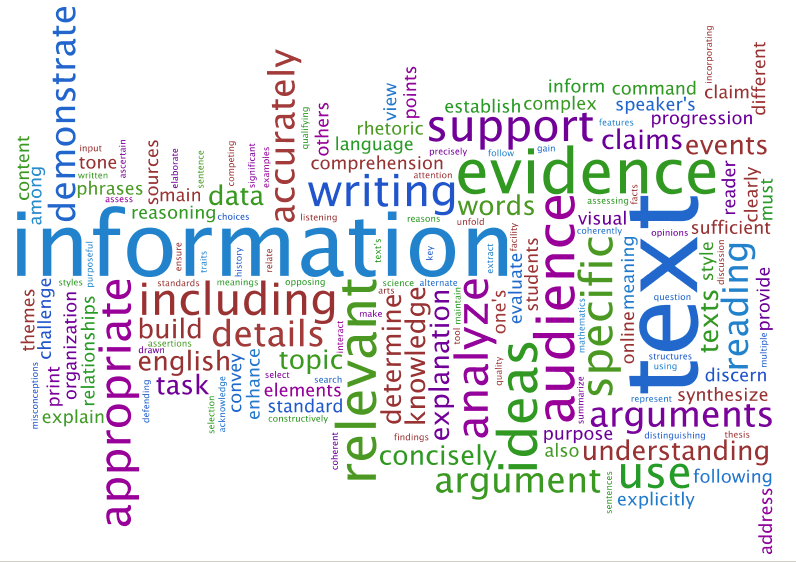Get students out of their seats with these kinesthetic/tactile learning games that reinforce ELA concepts taught in the classroom!1. Hot WadPractice vocabulary with a twist on hot potato! On scraps of paper write down different objectives for kids to conquer!

Then, wad up the scraps to make a ball. Have students sit in a circle and turn some music on. Students pass the ball clockwise until the music stops. The one holding the ball has to unwrap a piece of the scrap paper from the ball. The teacher gives the child a word and the player answers. For example, what part of speech is it?!
Language Arts Definition


If the player answers correctly he stays in the game. For younger students, you can write their sight words on the scrap paper. Students have to say the word they unwrap!Note: This game could also be used to practice simple multiplication facts. Write down equations on scrap paper. Students figure out the product to stay in the game!2. Word WheelGet kids interacting and improving their language skills with this fun game! For the activity, simply toss vocabulary words in a lunch bag.
5-36 choosing cost drivers activity-based costing activity-based management. Students flick the game spinner, then pull out a word. Once they have their word, the fun begins!Students act, draw, rhyme, or define their word. They might also have to put it in a sentence, name what part of speech it is, or give a synonym or antonym for it.
It’s a game of chance! Click to save spinner and a recording sheet to your desktop and print.3. Sentence Hunt (4 Types)Students roll the sentence and try to find the type of sentence it lands on! They can look through a book, magazine, newspaper – whatever they would like!4. Time Warp: Verb TensesLay out the, give students a sentence, and have them run to the correct verb tense mat! Once on the mat, they identify the verb within the sentence.Example:He ate an orange!
(Child runs to the “past” mat and calls out “ate”)He eats an orange everyday!He will eat an orange!5. Build a Story: Collaboration GameGet students out of their seats and inspired to write with a fun socialization game! Scatter random nouns, verbs, and adjectives around the room. Students have to hunt for one of each. If you are doing the activity with younger students, you can color coordinate the parts of speech. For example, nouns on blue paper, adjectives on red, and verbs on yellow.
For older students, use a single color to make the scavenger hunt more of a challenge! Once they’ve found each part of speech, tell kids that they can trade with their peers if they’d like to. Then, have them find a partner and collaborate on a story using their parts of speech. Tell students if they have a noun that is a person, try to find a partner who has a noun that represents a place.When everyone has a partner, students start collaborating on a unique story that uses both of their nouns, verbs, and adjectives. They must have a main character, setting, plot, and create a structure for their story. What happened first, next, last?
Language Arts Lesson Plans
What is the main event? Optional: After they organize their story, have them publish it online (ex: Smories, Little Bird Tales, click for a full list of free web 2.0 publishing tools).For more hands-on fun games and projects, check out Erin’s blog.
Sheppard Software's Language Arts page features a variety of games for different grade levels.Elementary students (and anyone who needs a refresher) can play the animated, which review basic punctuation and grammar concepts. This section is continually being refined and expanded, so check back often!Middle school, high school, and adult learners can review their through the SAT Words and Vocabulary in Context games. Memorizing a wide variety of important vocabulary words will really help you succeed in the verbal sections of the SATs and GREs. In addition, reading challenging books, using the vocabulary you learn in daily life, and writing will help cement the words in your mind. Practicing vocabulary will not only boost your scores on standardized tests, it will help you communicate precisely what you mean in daily life!High schoolers and adults can learn medical and computer terminology through the.If you love games involving letters and words, please enjoy our section, which is great for a range of ages. These games and puzzles will exercise your mind as you have fun!Playing these games repeatedly will strengthen your grasp of grammar, punctuation, and vocabulary in general life, and help you communicate your ideas with greater impact.
Language Arts Lesson Plans
Please enjoy these games, and let us know if you have any suggestions or ideas for additional interactives!